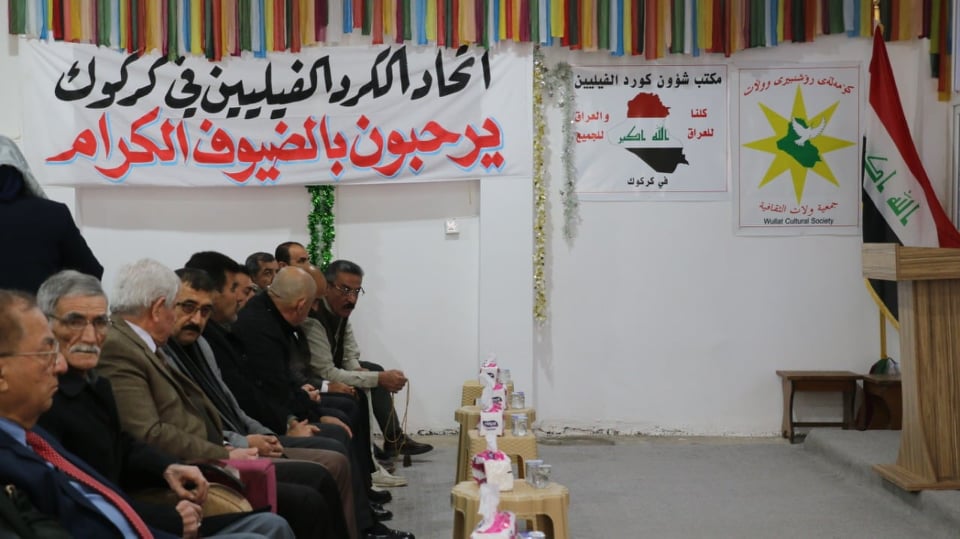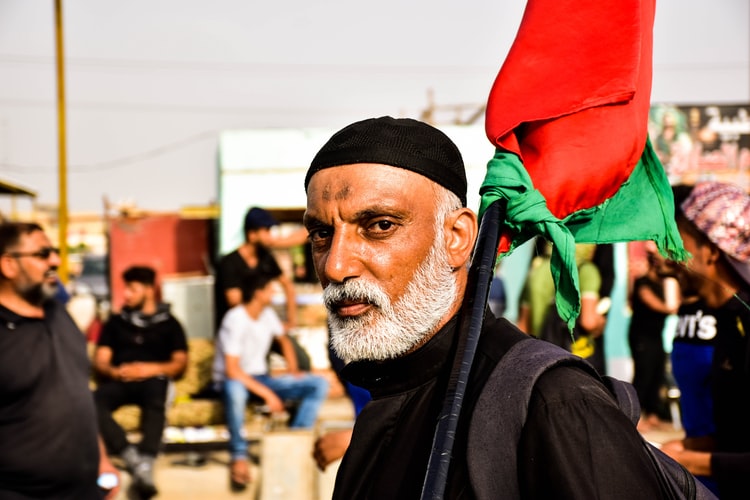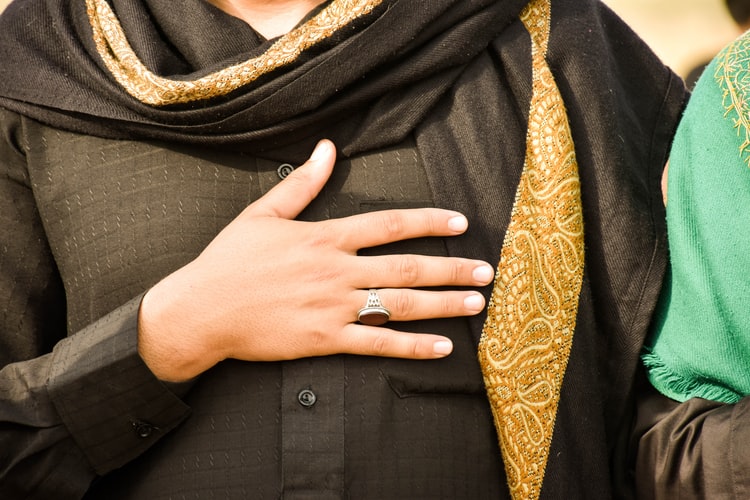The Feyli Kurds, as members of an Iraqi minority community, have struggled for decades for their rights, paying the price for their ethnicity and sect. Nonetheless, their persistence has been critical to overcoming threats to their language and identity.
The Feyli population is estimated at 800 thousand, the majority of which resides in Diyala, Baghdad, and Wasit provinces.
The Feylis are Kurds by ethnicity and Shia by their sect; identities which justified their prosecution as minorities throughout Iraqi history. Therefore, they seek to concentrate their efforts on group unity so that they may have an role in decision-making processes.
Haji Dawd As’ad, head of the Feyli Kurds Organization based in Kirkuk, said that Feylis are trapped between two governments. “When we ask the Kurdistan Regional Government for our rights and discuss our issues with the authorities, they say that we are Shia and do not help us. The federal government too says that we are Kurds and they create barriers for us.”
The Feylis want representation in the Iraqi Council of Representatives and provincial councils, and to have a role in legislative and decision-making process. “We want our representatives to defend the Feyli Kurds,” As’ad said.

The opening of Feyli Kurds Organization in Kirkuk, 2020
The Felyi Kurds have only one seat in the Council of Representatives, an MP from Kut province elected in accordance with the quota system. Before parliament dissolved the provincial councils last year, the Feyli community was also represented in the provincial councils of Baghdad and Wasit.
However, no seats have been allocated to the group in the Kurdistan Region parliament or the provincial councils in the region.
As’ad claims that the Feyli Kurdish minority is one of the largest minority communities in Iraq and should be given a larger role in government. “Even in Kirkuk, there has been no [Feyli] representative in the provincial council, even though 2,800 Feyli Kurds live there.”
Even in Kirkuk, there has been no [Feyli] representative in the provincial council
The Feyli Kurds Organization office in Kirkuk, which opened this year, strives to bringing the Feylis together and enhance cooperation between them to strengthen their influence.
These attempts to improve the Feylis’ representation coincide with the formation of the new Iraqi government led by Mustfa al-Kadhimi, who has prioritized holding early elections.
Consequently, the Feylis have begun efforts to make a stronger showing in the next election and to form a united front in Baghdad, where 400 thousand of them reside.
Nasrin Mohammed Karim, an activist for women’s and Feyli Kurds’ rights, told KirkukNow: “We faced major issues during the rule of the Baathist regime, especially in the 1980s. The current obstacles require Feyli Kurds to come together to make a difference and to exercise their rights.”

Photo credit Unsplash website
The Feyli Kurds faced forced relocation, persecution, and the revocation of their citizenship under the former Iraqi Baathist regime because of the group’s identity as both Kurdish and Shia. These crimes were recognized as acts of genocide by Iraq’s Supreme Criminal Court in 2010.
“The Feyli women have suffered greatly. The first woman executed by the [Ba’athist] regime because she demanded rights for [Feyli Kurds] was Layla Qassem,” Karim added.
Karim said, “what is important and what makes us proud is that we still stand on our feet, and we have continued the path of our ancestors. We will continue until we claim our rights.”
What is important and what makes us proud is that we still stand on our feet
The Feyli Kurds have their own dialect, culture, and traditions but have been persecuted because of their ethnicity and sect.
Ali Ahmad Feyli, 54 years old, a political analyst, thinks that the allocation of a quota seat to the Feyli Kurdish community was a step in the right direction. He told KirkukNow previously, “we should also have our own representative in the parliament to remind [the Iraqi government] of the neglected needs and demands of the Feyli Kurds.”
Majority of the Feyli Kurds returned to Baghdad after the fall of the former Iraqi regime in 2003, but many again abandoned the city due to the threats from armed groups.
Ahmad Feyli claims, “during the [Kurdistan Region’s independence] referendum campaign in 2017, we were threatened; not because of our sect but because we are Kurds.”
Feily believes that these threats are “attempts to assimilate us and eliminate our dialect and culture.” He added, “systematic plans are in place to do that.”
Attempts to assimilate us and eliminate our dialect and culture
If current conditions require that the Iraqi religious and ethnic minorities take part in political processes, then for the Feyli Kurds, there is an additional struggle for “unity and to preserve language and identity,” Khalil Shwani, head of the Cultural Community of the Feyli Kurds Organization told KirkukNow.





